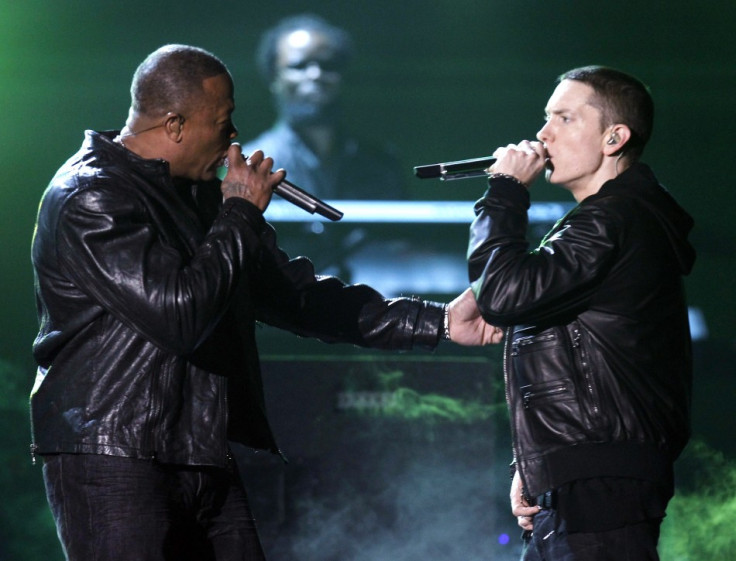Freestyle Rappers: Brain Scans Reveal How Eminem and Jay Z Improvise on the Spot [VIDEO]

How do rappers like Eminem and Jay Z manage to freestyle rap without getting tongue-tied?
The answer, it appears, lies in the brain. New research shows that the ability to 'spit rhymes' lies in which areas of the brain are used when performing creative tasks.
Scientists at the National Institute on Deafness and Other Communication Disorders, in Maryland, scanned the brains of 12 freestyle rap artists, including Open Mike Eagle, a Los Angeles-based musician.
Researchers looked at the brain activity that takes place while rappers are freestyling - when they improvise lyrics in on the spot.
The rappers - all of whom had at least five years' experience - were asked to perform two tasks using an identical eight-bar musical track. For the first, they improvised rhyming lyrics and rhythmic patterns guided by the beat - or freestyle, as it were.
In the second task, they were asked to perform a well-rehearsed set of lyrics.
The findings showed that freestyling as a form of vocal improvisation is related to a unique functional re-allocation of brain activity in the prefrontal cortex - the area of the brain associated with thought, action, decision-making and personality expression.
This suggests a "novel neutral network that appears to be intimately involved in improvisatory and creative endeavours", the study said.
While freestyling, there was also a decreased level of activity in the dorsolateral prefrontal regions of the brain, which normally play a monitoring or supervisory role.
Decreased activity in this section of the brain suggests that the rappers are able to express thoughts and words without normal neurological constraints.
But how do the rappers know what words to say? Another part of the brain that changed during the scans was the perisylvian system, which is involved in language production, the amygdala, which is linked with emotion, and the cingulate motor areas, which are involved with emotions, learning and memory.
Researchers say this indicates that freestyle rapping engages a brain network that links up "motivation, language, mood and action".
The Guinness world record for the longest freestyle rap is held by Reid 'V.i.P' Brown from the US. He managed to freestyle nonstop for 12 hours exactly on 22 October, 2011.
Reid V.i.P. Brown/YouTube
© Copyright IBTimes 2025. All rights reserved.






















